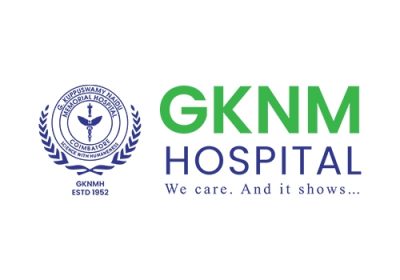How Can General Surgery Medical Billing Professionals Stay Updated with the Ever-Changing Billing Codes and Regulations?
Description
Medical billing professionals face the daunting task of keeping up with constantly changing billing codes and regulations. These changes are crucial to ensure compliance and to maximize reimbursement from insurance companies. But how can these professionals stay on top of the game? Let’s dive into the strategies and resources that can help.
Understanding Billing Codes and Regulations
Definition of Billing Codes
Billing codes are standardized codes used to describe medical, surgical, and diagnostic services. These codes ensure that medical claims are processed efficiently and accurately. Common sets of codes include the Current Procedural Terminology (CPT), International Classification of Diseases (ICD), and the Healthcare Common Procedure Coding System (HCPCS).
Overview of Billing Regulations
Billing regulations are rules set by governmental and insurance bodies to govern the General Surgery Medical Billing process. They ensure that the billing is done correctly, ethically, and in compliance with the law. These regulations are updated regularly to reflect changes in medical practices, policies, and technologies.
Why They Change Frequently
Medical billing codes and regulations change frequently due to advancements in medical technology, changes in healthcare policies, and updates in clinical practices. Staying updated with these changes is essential to avoid errors, prevent fraud, and ensure that healthcare providers are reimbursed properly.
Continuous Education
Importance of Ongoing Training
Continuous education is vital for medical billing professionals to stay current with the latest updates. Regular training helps them understand new codes and regulations, reducing the risk of errors and non-compliance.
Online Courses and Certifications
There are numerous online courses and certification programs specifically designed for medical billing professionals. Websites like AAPC and AHIMA offer comprehensive training programs that cover the latest updates in billing codes and regulations.
Workshops and Seminars
Attending workshops and seminars is another effective way to stay updated. These events provide hands-on training and opportunities to interact with experts in the field. They also offer the latest information on billing practices and regulatory changes.
Professional Organizations and Associations
Benefits of Joining Professional Organizations
Professional organizations offer a wealth of resources to their members, including access to the latest industry updates, educational materials, and networking opportunities. They also provide certification programs that are recognized industry-wide.
Key Organizations to Consider
Some of the leading organizations for medical billing professionals include:
- AAPC (American Academy of Professional Coders)
- AHIMA (American Health Information Management Association)
- MGMA (Medical Group Management Association)
These organizations offer regular updates, training programs, and certifications that are crucial for staying informed.
Utilizing Technology
Software and Tools for Staying Updated
Technology can be a game-changer for staying current with billing codes and regulations. Many software tools offer automatic updates and alerts about changes in billing codes. These tools can help streamline the billing process and ensure compliance.
Mobile Apps and Online Resources
Mobile apps and online platforms provide convenient access to the latest billing codes and regulations. Apps like Codify by AAPC and ICD-10-CM Browser allow professionals to quickly look up codes and stay informed on the go.
Networking and Collaboration
Building a Professional Network
Building a network of peers can provide invaluable support and information. Engaging with other professionals allows for the exchange of knowledge and experiences, which can help everyone stay updated with industry changes.
Forums and Online Communities
Participating in forums and online communities dedicated to medical billing is a great way to stay informed. Platforms like LinkedIn and specialized forums offer discussions on the latest trends, challenges, and updates in the field.
Government Resources
Accessing Official Updates
Government websites and publications are primary sources of official updates on billing codes and regulations. Websites like CMS.gov and the Federal Register provide timely and accurate information about QPP MIPS.
Key Government Websites and Publications
- CMS (Centers for Medicare & Medicaid Services): Offers updates on Medicare billing and coding.
- Federal Register: Publishes official changes in healthcare regulations.
- CDC (Centers for Disease Control and Prevention): Provides updates on ICD codes.
Staying Informed Through Publications
Subscribing to Industry Journals
Subscribing to industry journals is an excellent way to stay informed about the latest developments. Journals such as Healthcare Financial Management and Journal of AHIMA provide in-depth articles on current trends and updates.
Newsletters and Email Alerts
Signing up for newsletters and email alerts from reputable sources can keep you updated without much effort. These services deliver the latest news directly to your inbox, ensuring you never miss an important update.
Attending Conferences and Trade Shows
Importance of Industry Events
Conferences and trade shows are perfect venues for learning about the latest advancements and changes in medical billing. They offer workshops, presentations, and networking opportunities with industry leaders.
How to Find Relevant Events
To find relevant events, check the websites of professional organizations, follow industry news, and join online communities. Events like the AAPC Annual Conference and AHIMA Convention are must-attend for those in the field.
Webinars and Online Training Sessions
Benefits of Webinars
Webinars provide a convenient way to stay updated without the need to travel. They offer real-time access to experts and allow for interactive learning from the comfort of your office or home.
Finding Reliable Webinar Sources
Reliable sources for webinars include professional organizations like AAPC and AHIMA, as well as industry leaders and educational institutions. These sources ensure that the content is accurate and up-to-date.
Hiring a Consultant
When to Consider a Consultant
Hiring a consultant can be beneficial when facing complex billing challenges or when internal resources are insufficient to keep up with changes. Consultants bring specialized knowledge and experience to help navigate updates efficiently.
Benefits of Professional Advice
Consultants can provide tailored advice, help implement best practices, and ensure that your billing processes are compliant with the latest regulations. Their expertise can save time and reduce the risk of costly errors.
Implementing an Internal Audit System
Importance of Regular Audits
Regular audits are crucial for ensuring compliance and identifying areas for improvement. An internal audit system helps catch errors early and ensures that billing practices are up to date with current regulations.
How to Set Up an Internal Audit System
To set up an effective audit system, establish a schedule for regular reviews, assign responsibilities to qualified staff, and use audit tools and checklists. Regular training for the audit team is also essential to keep them updated on the latest changes.
Feedback from Colleagues and Peers
Encouraging a Feedback Culture
Encouraging a culture of feedback within your team can provide insights into the practical application of new billing codes and regulations. Regular team meetings and open communication channels foster a collaborative environment.
Learning from Others’ Experiences
Learning from the experiences of colleagues and peers can highlight common challenges and successful strategies. Sharing knowledge within the team helps everyone stay informed and improves overall efficiency.
Adapting to Changes in Real-Time
Strategies for Quick Adaptation
Quick adaptation to changes involves staying proactive, using technology to get real-time updates, and maintaining a flexible approach to workflows. Being open to change and continuously seeking new information are key strategies.
Importance of Flexibility in Practices
Flexibility in billing practices allows for quick adjustments when new codes or regulations are introduced. This flexibility minimizes disruptions and ensures that the billing process remains smooth and compliant.
Conclusion
Staying updated with the ever-changing billing codes and regulations is a challenging but essential task for medical billing professionals. By leveraging continuous education, professional organizations, technology, and a strong network, professionals can keep up with the latest changes. Regular audits, feedback from peers, and a flexible approach further ensure compliance and efficiency. In an industry where accuracy is paramount, these strategies are vital for success.
FAQs
How often should I update my knowledge on billing codes?
It’s recommended to update your knowledge on billing codes at least annually, but staying informed about quarterly updates is ideal for maintaining accuracy and compliance.
What are some reliable online courses for medical billing?
Reliable online courses for medical billing include those offered by AAPC, AHIMA, and medical coding schools such as CareerStep and Penn Foster.
How can small practices manage the cost of continuous education?
Small practices can manage costs by utilizing free or low-cost resources, sharing subscriptions among staff, attending local workshops, and taking advantage of webinars and online training.
What are the risks of not staying updated with billing codes?
Not staying updated can lead to billing errors, denied claims, compliance issues, and potential legal consequences. It can also result in financial losses and damage to the practice’s reputation.
Can outsourcing help with staying updated on billing regulations?
Yes, outsourcing to a specialized medical billing company can help ensure that your practice stays updated with the latest billing regulations, as these companies have dedicated resources and expertise to manage changes effectively.







Leave feedback about this
You must be logged in to post a review.